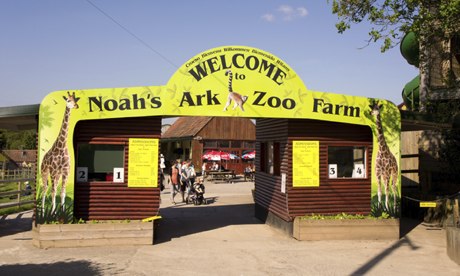Why I won't be going back to Bristol's creationist zoo
A creationist zoo in Bristol will bewilder adults and potentially undermine children's education

Tall stories: Noah’s Ark Zoo Farm offers animals and ‘light indoctrination’. Photograph: Alamy
On a cold and dreary afternoon, I headed off to a destination I'd long avoided, to a farm that has been converted into a zoo. This zoo had got into trouble in the past because of links with the Great British Circus, which had led to its expulsion from an industry body, the British and Irish Association of Zoos and Aquariums, in 2009.
But there was something else about this place that I found unsettling:Noah's Ark Zoo Farm is a creationist zoo. You should perhaps expect that from its name. But biblical words and phrases are part of our cultural heritage, and don't usually imply biblical literalism (at least, I don't think the directors of the Eden Project have any religious agenda to push). I had browsed Noah's Ark's website, so I knew that the name was more than hinting at a religious flavour to this North Somerset attraction.
I walked in with some trepidation, expecting to be inundated immediately with religious propaganda. But there's little evidence of the creationist theme until you enter the large barn in the middle of the complex, which houses an auditorium and an impressive indoor children's play area. This, it seems, was the holy of holies. The walls were covered in posters, and they made for interesting reading.
"All in all, bacteria do not look as if they were the products of chance. They look as if they have been designed… Why has science closed its mind to the possibility that life was created?" asked one.

I feel it is important to point out that most of the Christian churches do not find evolution and an earth billions of years old repugnant to their doctrines. This includes Catholicism, Orthodoxy and the mainstream Protestant denominations.
ReplyDelete